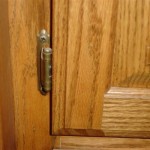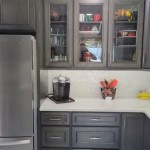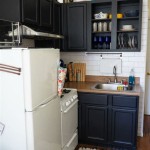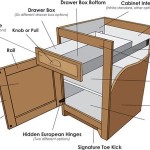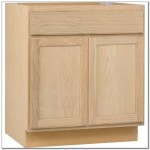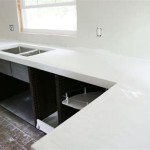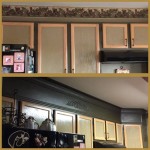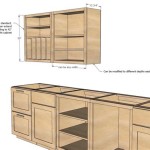Painting Bleached Oak Kitchen Cabinets: A Guide to Achieving a Fresh Look
Bleached oak kitchen cabinets, once a popular choice for their light and airy aesthetic, can sometimes feel dated or lack the desired warmth in modern kitchens. Fortunately, painting bleached oak cabinets offers a cost-effective way to refresh the space and create a personalized style. This guide delves into the process of painting bleached oak cabinets, addressing key considerations and steps to ensure a successful transformation.
Preparing the Cabinets for Paint
The foundation for a flawless painted finish relies on thorough preparation. Begin by emptying the cabinets and removing all hardware, including hinges, knobs, and pulls. Next, clean the cabinets thoroughly using a degreaser to remove any grease, grime, or residue that might hinder paint adhesion. After cleaning, lightly sand the cabinets with fine-grit sandpaper (120-150 grit) to create a rough surface for the paint to adhere to. This step also helps to remove any imperfections or glossiness from the existing finish.
For cabinets with a polyurethane or varnish finish, primer is crucial. A bonding primer, specifically designed for adhesion to glossy surfaces, will create a strong base for the paint. Apply the primer evenly using a brush or roller, ensuring complete coverage. Allow the primer to dry completely before proceeding to the next step.
Choosing the Right Paint
Selecting the right paint is essential for a long-lasting and aesthetically pleasing finish. Consider these factors when choosing the paint:
Type: For kitchen cabinets, opt for a high-quality acrylic latex paint. These paints offer excellent durability, washable finishes, and low VOCs, making them ideal for high-traffic areas. Semi-gloss or satin finishes are popular choices for kitchens as they are easy to clean and resist fingerprints.
Color: The color selection will depend on the overall kitchen design and personal preferences. Popular choices for bleached oak cabinets include white, gray, light blues, and greens. Consider using samples to test colors on the cabinets before committing to a full paint job.
Painting the Cabinets
Armed with the right materials and preparation, the painting process is relatively straightforward. Begin by masking off areas around the cabinets with painter's tape to prevent paint splatters. Apply the paint in thin, even coats using a brush or roller. For brush application, use smooth, even strokes in the direction of the wood grain. For roller application, use a high-quality roller cover and apply the paint in overlapping "W" patterns.
Allow each coat to dry completely before applying the next. Typically, two to three coats are sufficient for full coverage and a durable finish. Once the final coat is dry, carefully remove the painter's tape and replace the hardware. Allow adequate time for the paint to cure before using or loading the cabinets.

How To Paint Oak Cabinets White Best Diy Guide 2024

How To Paint Fake Wood Kitchen Cabinets Simple Made Pretty 2024

Painting Oak Wood Cabinets To Give Them An Updated Look

How To Make Oak Kitchen Cabinets Look Modern Celeste Jackson Interiors

Best Paint For Kitchen Cabinets 24 Brands Blind Tested 2024

Kitchen Cabinet Reveal Painted Oak

How To Paint Your Cabinets Like The Pros And Get Grain Out Decor

How To Paint Oak Cabinets And Hide The Grain Kitchen Makeover Renovation Design

Glossy White Paint On Honey Oak Kitchen Cabinets Before After

Painted Oak Cabinets Frequently Asked Questions Nina Hendrick
Related Posts

